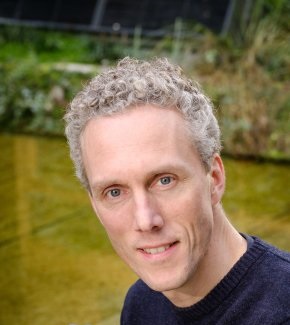Leónie Bentsink is studying the influence of mRNAs on the preservability of seeds, and Ton Hoitink is researching how the loss of a foreshore disrupts the sediment balance in deltas.
The Vici grant, one of the biggest personal scientific awards in the Netherlands, is part of the Innovational Research Incentives Scheme of the Netherlands Organization for Scientific Research (NWO). With the 1.5-million-euro award, the researchers can develop their own line of research in the next five years and create a research group.
Seeds forever

You can keep seeds for years and they can still germinate. In order to germinate, specific proteins need to be developed in the seed. Genetic material in the plant’s DNA is converted into protein via mRNA, a sort of messenger. ‘What is special is that this mRNA usually has a very short lifespan,’ said Leónie Bentsink of the Laboratory for Plant Physiology. In a bacterium it no longer functions after just a few minutes and in humans it remains active for a few hours. Bentsink: ‘We would like to know how this mRNA remains good for so long in seeds.’ This knowledge can also be used to better predict how long seeds can be stored without this being merely a process of trial and error. ‘In addition, the seed industry processes seeds beforehand via so-called “priming” so that they germinate better at the grower’s,’ Bentsink said. ‘The goal is to use knowledge about the stability of the mRNAs in seeds in order to help the seed industry improve priming.’
Deltas out of shape

Deltas connect a river with the sea in an area where sand, sludge and clay can settle. Foreshores in river deltas – those are the shallow areas that are submerged during part of the tidal cycle – are losing ground because of land reclamation and the rise of the sea level. ‘This alters the tides in the delta, and the transport paths of sand, sludge and clay change,’ explained Ton Hoitink of Hydrology and Quantitative Water Management. ‘This then leads to problems such as sedimentation in waterways, river bank erosion and a very high level of turbidity.’ River bank erosion and increased sedimentation in waterways increase the chance of flooding. A higher turbidity lowers the natural values in a delta and can hinder ships if it turns into liquid mud. Hoitink: ‘We don’t yet understand the physical mechanisms of these current, urgent problems and we want to get more insight into these mechanisms. This insight can then be translated into guidelines for a sustainable design of waterways and foreshores aimed at preventing flooding, facilitating shipping and improving the aquatic conditions that are decisive for ecosystems.’
Veni, Vidi, Vici
The Vici grant is one of the three grant forms of the Innovational Research Incentives Scheme. The other two are the Veni grant (for recent PhDs, up to three years after receiving the PhD) and the Vidi grant (for experienced postdocs, up to eight years after receiving the PhD).

 Photo: NWO
Photo: NWO